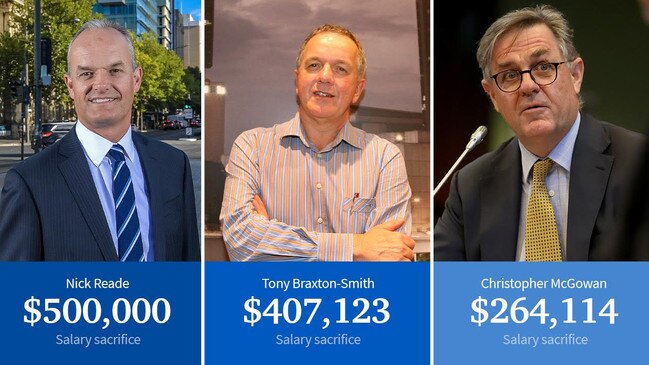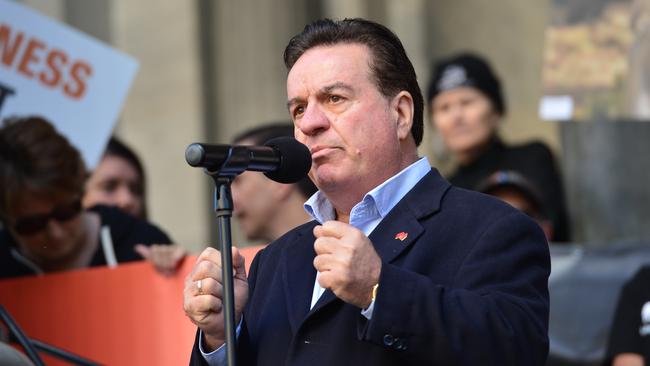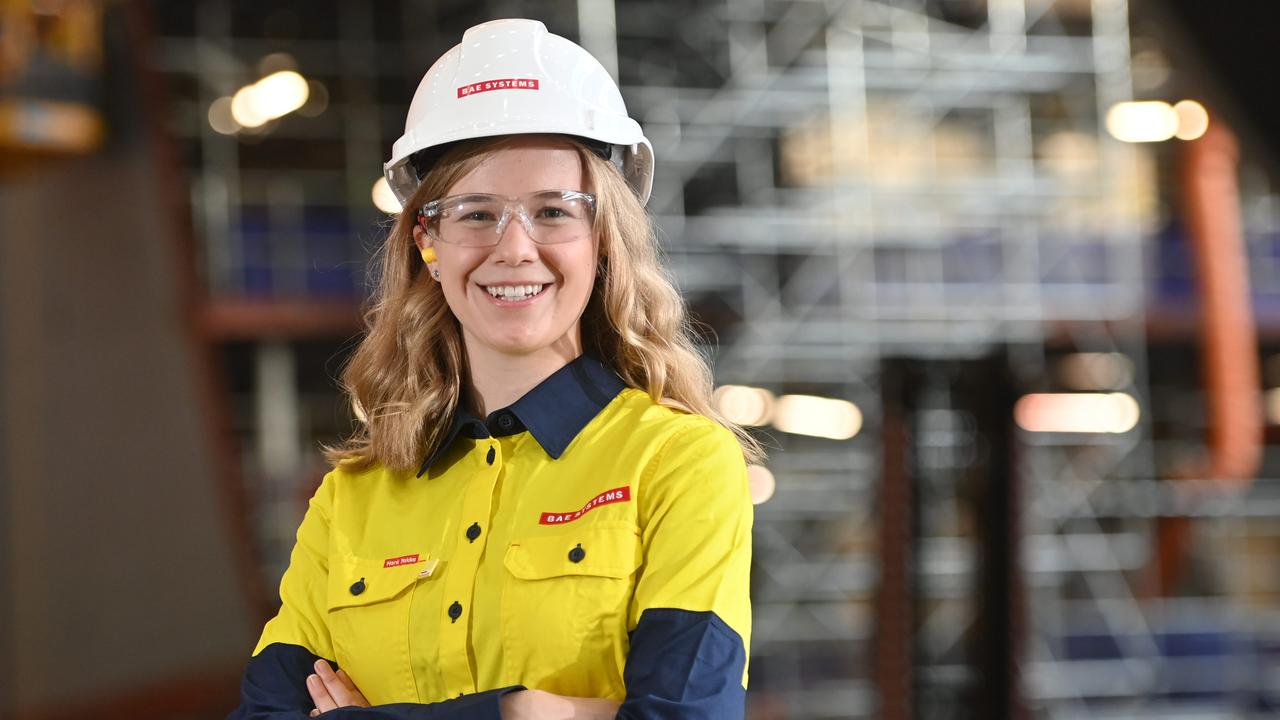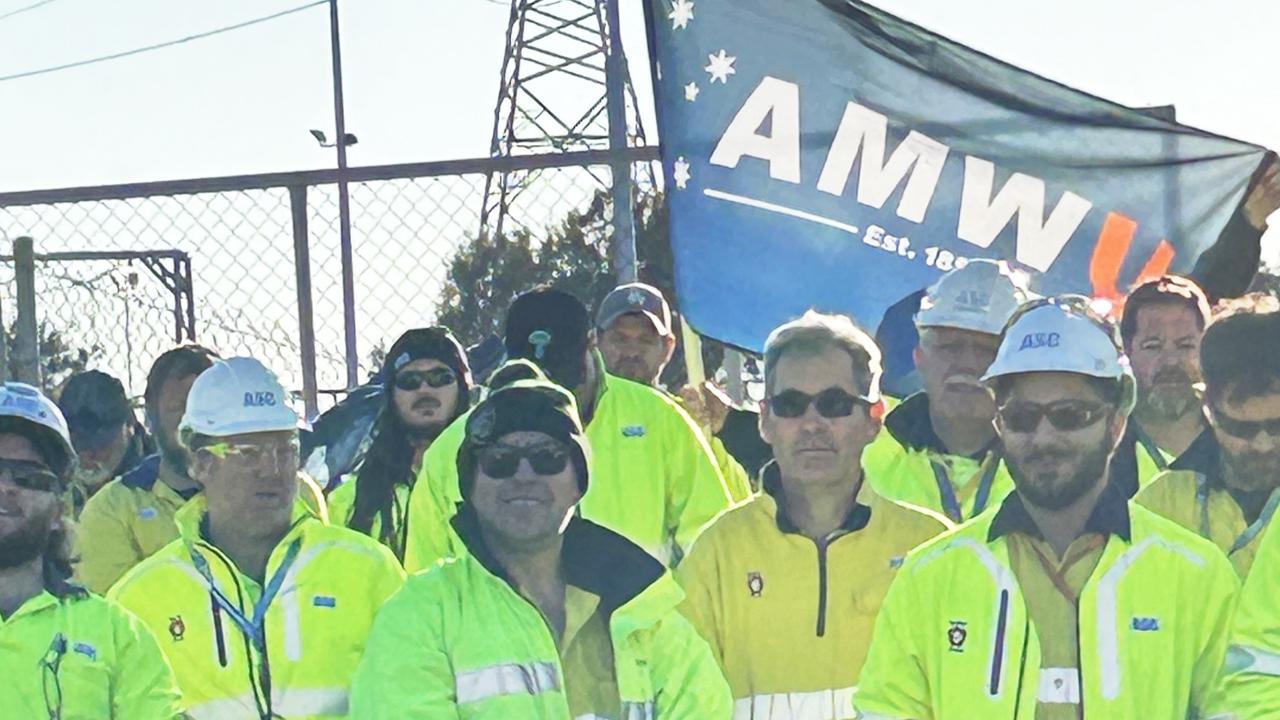SA public service CEOs salary sacrificing up to $500,000 a year in superannuation to minimise tax, get bonus payments
Highly paid public service CEOs are salary sacrificing up to $500,000 a year into their super to minimise income tax – and get a bonus payment from SA taxpayers.

SA News
Don't miss out on the headlines from SA News. Followed categories will be added to My News.
Some of the state’s highest-paid public servants are being allowed to minimise income tax by putting up to $500,000 each into superannuation.
Figures from the Department of Premier and Cabinet show 10 of the state’s 24 department chief executives are putting hundreds of thousands of dollars of salaries into super to minimise tax liabilities.
Depending on age and other earnings, it means an income tax rate of only 15 per cent is charged instead of 45 per cent, but details are being kept secret.
The system also allows the department heads to obtain larger employer contributions from the taxpayer, the largest $54,224, or almost equal to the average salary of ordinary South Australians.
The information, released to SA-Best MLC Frank Pangallo by the Department of Premier and Cabinet, also shows the 24 department heads are being paid $1.9 million in super this year alone.
“They are allowed to salary sacrifice huge amounts under the rules, but it isn’t what the taxpayer would want,” he said.
“When you’re on a good thing, stick to it, unlike the poor old ordinary taxpayer who doesn’t get these benefits of such a generous scheme.”
Treasurer Rob Lucas said: “Salary sacrificing is a common and longstanding practice which is available to many employees in both the public and private sectors in Australia’’.
The highest salary sacrificers were Nick Reade, head of premier and cabinet, who put $500,000 into super, and transport boss Tony Braxton-Smith who put in $407,123. Neither would comment.
A Department of Premier and Cabinet spokesman said: “Salary sacrifice options help attract the best people to lead South Australia’s public sector.”


None of the departments asked by The Advertiser would say whether their chiefs were able to taking advantage of the 15 per cent tax rate.
Public servants can salary sacrifice all of their income into superannuation, but many earn less than $50,000.
Super SA explains the tax advantage: “Rather than paying tax upfront, salary sacrifice contributions will be taxed when you withdraw them from Triple S after age 55, subject to applicable tax rates, which depend on your commonwealth government preservation age.”
When asked how the bosses could justify avoiding large amounts of income tax, Mr Lucas said: “Whether an employee chooses to salary sacrifice any amount of their salary is a personal matter for that employee.”
“The possible effect of salary sacrificing on an employee’s tax position clearly depends on the particular application of Commonwealth taxation law to the employee’s personal circumstances and this is a matter for the employee,” he said.
“Irrespective of whether an employee chooses to salary sacrifice or not, the total remuneration level paid by the government remains unchanged.”




